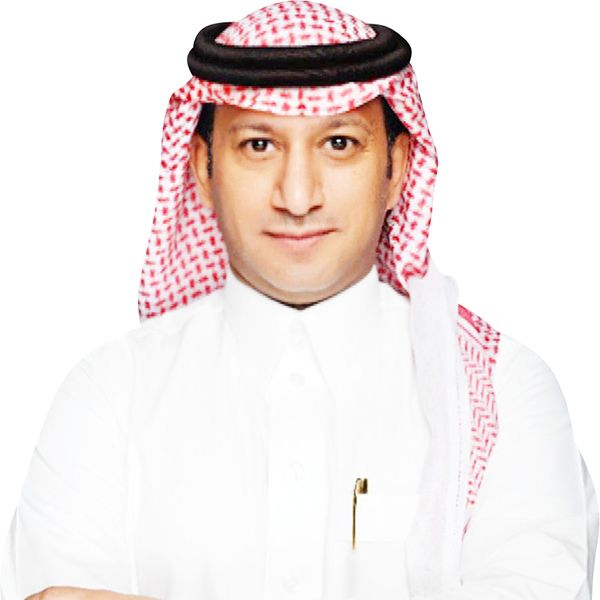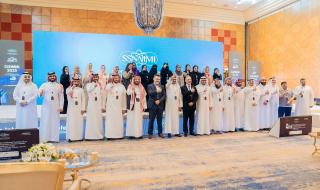
استمع إلى المقال
استمع
الدور السعودي في إشاعة ثقافة الحوار ومحاربة التطرّف ودعم التسامح لطالما ترددت العبارة ذاتها على مسامعنا: «لقد قتلتنا الصحوة وسرقت جماليات الحياة التي كان يتمتع بها المجتمع السعودي، ويا ليتنا نعود إلى ما قبل خمسة وثلاثين عاماً». غير أنني، في كل مرة أسمع فيها هذا القول، لا أتمنى العودة إلى عقود مضت، بل إلى أكثر من أربعة عشر قرناً خلت، إلى زمن الإسلام الأول، حين كان المجتمع متسامحاً، منفتحاً، ومفعماً بالرحمة والوسطية.
في عدد من مشاريعي التلفزيونية التي سعت إلى الغوص في عمق الثقافة والفكر والتاريخ الإسلامي، قادتني النقاشات المثمرة مع عدد من المفكرين السعوديين إلى تأمل هذا المعنى مجدّداً. فقد كان الحوار حول ثقافة التسامح، وجوهر الشريعة وروحها الإنسانية مفيداً للجميع، ذلك أن الإسلام في أصله لم يكن دين تشدّد أو إقصاء، بل دعوة للسلام والتفاهم والتعايش.
من هنا، يمكن القول إن المملكة العربية السعودية أدركت مبكراً خطورة الفكر المتطرّف على الدين والإنسان معاً، فتبنّت نهجاً راسخاً يقوم على الحوار والتسامح ومواجهة الغلو. لقد نجحت المملكة في استعادة الصورة الحقيقية للإسلام باعتباره دين وسطية وعدل ورحمة، لا دين عنف أو كراهية. ومصداقية هذا الدور نابعة من كون السعودية مهد الإسلام، ومن حرصها على أن تكون مرجعية فكرية وروحية في العالمين العربي والإسلامي.
ولأنها تدرك أن الحرب ضد التطرف تبدأ من الفكرة قبل السلاح، أنشأت المملكة عدداً من المراكز الفكرية الرائدة التي أصبحت نموذجاً عالمياً، مثل مركز اعتدال الذي يتصدّى للفكر المتطرف عبر تحليل المحتوى الرقمي، ومركز الحرب الفكرية التابع لوزارة الدفاع الذي يعمل على تفكيك خطاب الكراهية وإعادة تعريف المفاهيم الدينية المغلوطة، والمركز العالمي للحوار بين أتباع الأديان والثقافات (كايسيد) الذي يفتح نوافذ التفاهم بين الشعوب.
هذه المبادرات ليست مجرد مؤسسات، بل مشروع وطني شامل لإعادة بناء الوعي، وترسيخ ثقافة الحوار والاعتدال في مواجهة الانغلاق والتعصب. لقد أصبح الصوت السعودي اليوم أحد أبرز الأصوات الداعية إلى السلام والتعايش في المنطقة والعالم، من منطلق قناعة راسخة بأن الأفكار المضيئة أقوى من الرصاص.
إن التجربة السعودية في محاربة التطرّف لا تقوم على الأمن وحده، بل على التعليم والإعلام والثقافة والفكر، في مسار متكامل يستعيد جوهر الإسلام كما بدأ: دين رحمة وعدل وإنسانية.
The Saudi role in promoting a culture of dialogue, combating extremism, and supporting tolerance has often been echoed in our ears: "The awakening has killed us and stolen the beauty of life that the Saudi community enjoyed, and I wish we could return to what it was like thirty-five years ago." However, every time I hear this saying, I do not wish to return to decades past, but rather to more than fourteen centuries ago, to the early days of Islam, when society was tolerant, open, and filled with mercy and moderation.
In several of my television projects that aimed to delve into the depths of Islamic culture, thought, and history, fruitful discussions with a number of Saudi thinkers led me to reflect on this meaning once again. The dialogue about the culture of tolerance, the essence of Sharia, and its humanitarian spirit was beneficial for everyone, as Islam, in its essence, was not a religion of rigidity or exclusion, but a call for peace, understanding, and coexistence.
From this perspective, it can be said that the Kingdom of Saudi Arabia recognized early on the danger of extremist thought to both religion and humanity, adopting a firm approach based on dialogue, tolerance, and confronting extremism. The Kingdom has succeeded in restoring the true image of Islam as a religion of moderation, justice, and mercy, not a religion of violence or hatred. The credibility of this role stems from Saudi Arabia being the cradle of Islam and its commitment to being an intellectual and spiritual reference in the Arab and Islamic worlds.
Recognizing that the war against extremism begins with ideas before weapons, the Kingdom has established a number of leading intellectual centers that have become global models, such as the I'tidal Center, which tackles extremist thought through analyzing digital content, and the Ideological Warfare Center affiliated with the Ministry of Defense, which works to dismantle hate speech and redefine distorted religious concepts, as well as the King Abdullah bin Abdulaziz International Center for Interreligious and Intercultural Dialogue (KAICIID), which opens windows of understanding between peoples.
These initiatives are not just institutions, but a comprehensive national project to rebuild awareness and establish a culture of dialogue and moderation in the face of closure and intolerance. Today, the Saudi voice has become one of the most prominent voices advocating for peace and coexistence in the region and the world, based on a firm conviction that illuminating ideas are stronger than bullets.
The Saudi experience in combating extremism is not based solely on security, but also on education, media, culture, and thought, in an integrated path that restores the essence of Islam as it began: a religion of mercy, justice, and humanity.
ملحوظة: مضمون هذا الخبر تم كتابته بواسطة عكاظ ولا يعبر عن وجهة نظر مصر اليوم وانما تم نقله بمحتواه كما هو من عكاظ ونحن غير مسئولين عن محتوى الخبر والعهدة علي المصدر السابق ذكرة.





